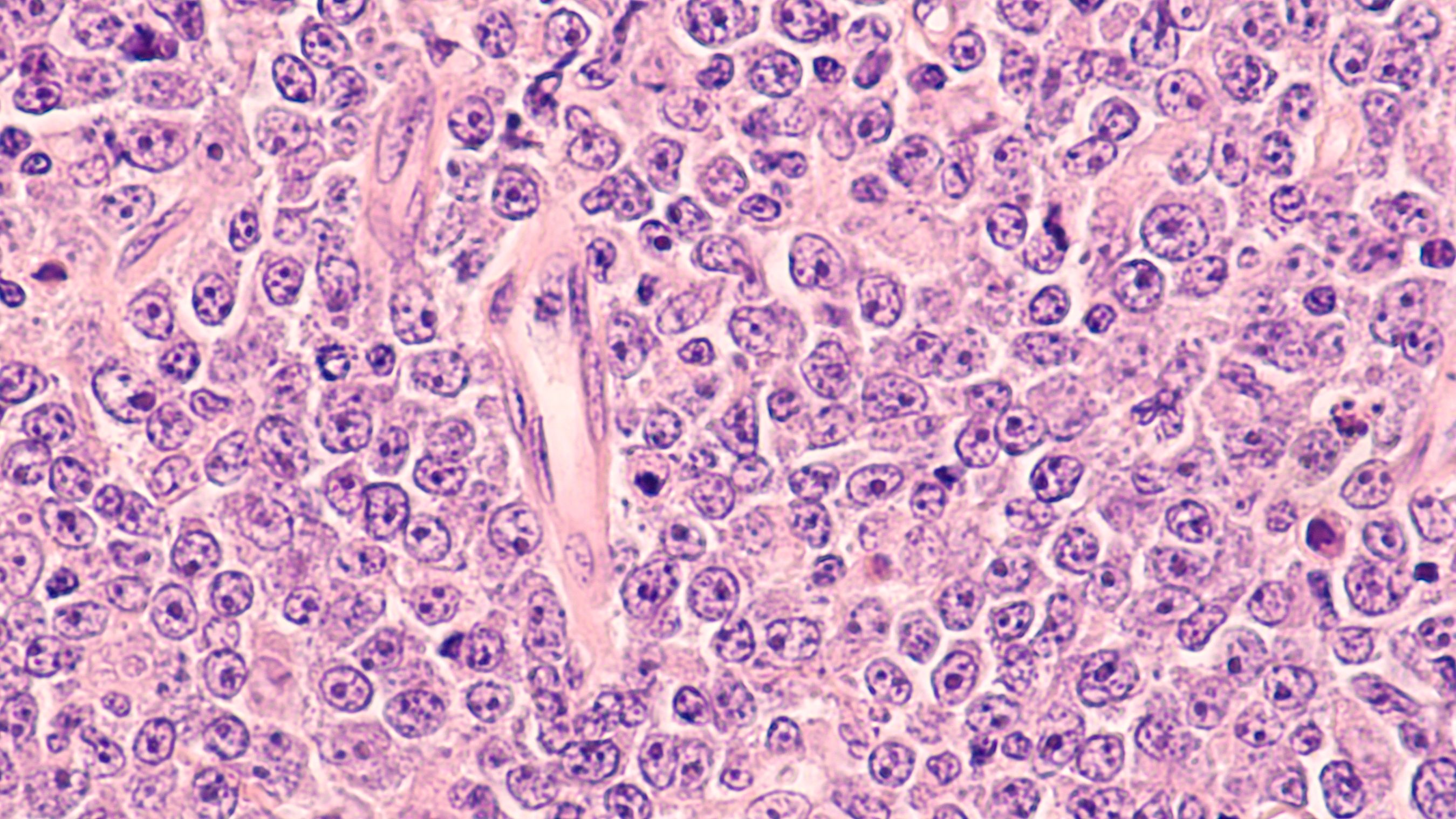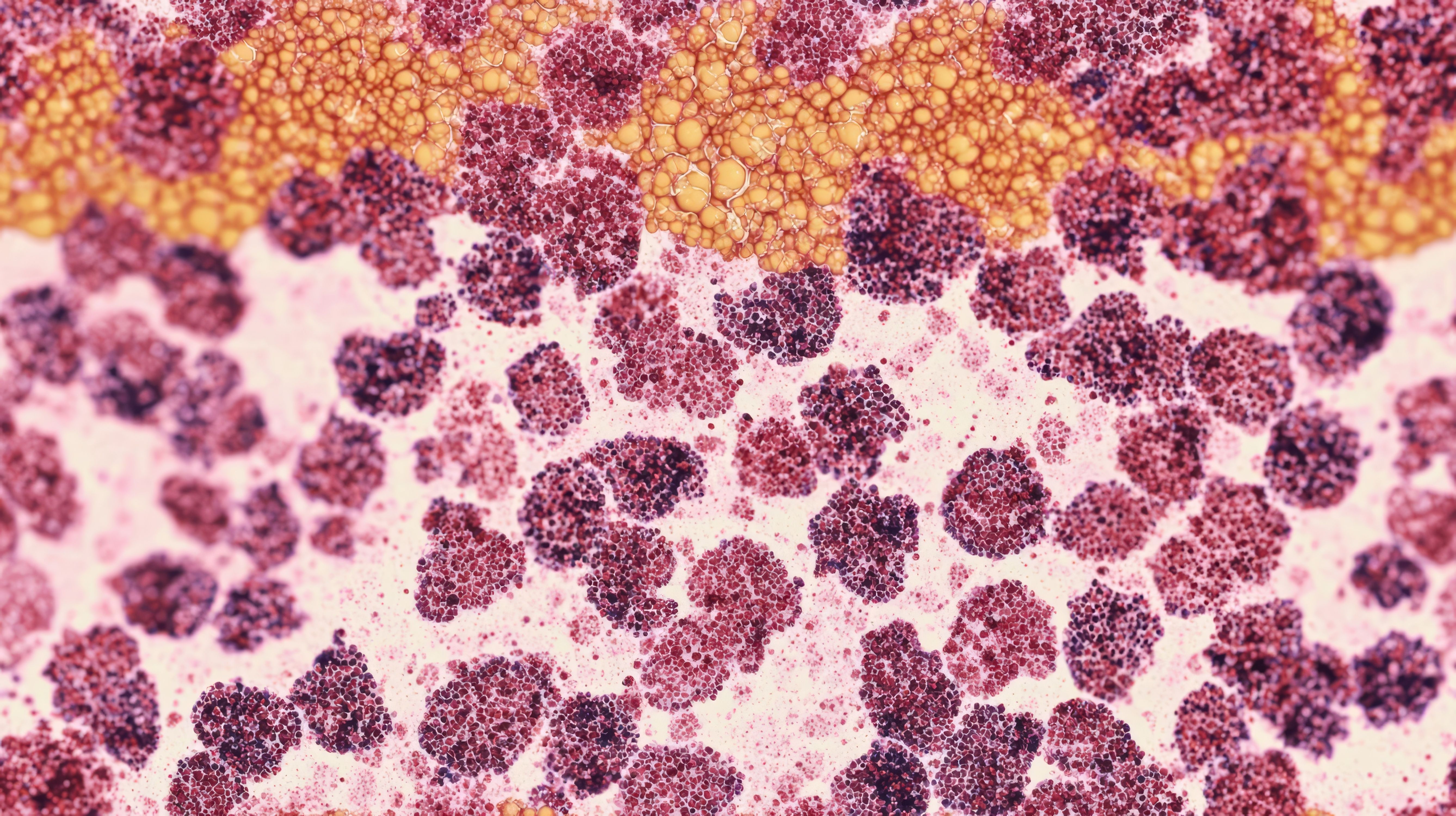Although mutations affect BAF and can lead to dangerous outcomes, the mutation can also make follicular lymphoma more susceptible to experimental BAF-inhibitor drugs, according to results of a study published in Cancer Cell.1,2
“These encouraging findings could address critical and urgent challenges with this disease and have prompted us to begin planning clinical trials of BAF inhibitors in follicular lymphoma patients,” Ari Melnick, MD, the Gebroe Family Professor of Hematology/Oncology at Weill Cornell Medicine, said in a press release.2
According to the Lymphoma Research Foundation, follicular lymphoma is a slow-growing form of non-Hodgkin lymphoma developing from B-lymphocytes. The subtype accounts for approximately 20% to 30% of all non-Hodgkin lymphoma cases, according to the foundation.3
Investigators examined the role of mutations in ARID1A, which encodes the BAF protein. The BAF protein, according to the press release, works to regulate gene activity and cell identity by changing the shape of the genome. The ARID1A mutations disrupting BAF are found in a significant number of individuals with follicular lymphoma, according to the press release.2
The results showed that the ARID1A deficiency in B cells resulted in unusual immature memory B cell identity, resulting in BAF dysfunction. Investigators said that the cell kept re-entering a temporary phase of B-cell mediated immune response, facilitating cell division and diversification of antibodies that are needed during infection, but as a result, the cell would undergo high rates of mutation, during even-grater malignancy, according to the press release.2
“These data raise the possibility of developing early intervention precision therapies for those follicular lymphoma patients at risk for rapid progression, who currently do not have such options,” Melnick said in the press release.2
Investigators observed that the mutations were enriched in the memory B cell-like follicular lymphoma which were, higher and at earlier risk for transformation. They wondered if the B cells with the mutation entering rapid cell division could explain the rapid progression of follicular lymphoma. They hypothesized that the mutant lymphomas could be especially vulnerable to drugs that attack the BAF functions. In a preclinical experiment, the investigators proved that the ARID1A mutation made lymphoma more susceptible to these drugs, according to the press release. Investigators found that mice bearing the ARID1A mutations went into complete remission with the drug alone.2
Key Takeaways
- Mutations in the BAF complex, particularly ARID1A, are common in follicular lymphoma and may contribute to aggressive disease progression.
- These mutations lead to abnormal B cell development and increased cell division, potentially accelerating lymphoma development.
- The study suggests that lymphomas with BAF mutations are more susceptible to drugs targeting the BAF complex function.
“These findings suggest that ARID1A is effectively a tumor suppressor, whose deficiency in follicular lymphoma promotes the transformation to a more aggressive lymphoma,” Darko Barisic a postdoctoral researcher at Weill Cornell Medicine, said in the press release.2
According to Barisic in the press release, other BAF-subunits mutations could have related roles in driving disease progression.2 Investigators said that these findings could potentially pave the way for precision therapy to be used in patients who are high risk, according to the study authors.1
References
Barisic D, Chin CR, Meydan C, et al. ARID1A orchestrates SWI/SNF-mediated sequential binding of transcription factors with ARID1A loss driving pre-memory B cell fate and lymphomagenesis. Cancer Cell. Published online March 7, 2024. doi:10.1016/j.ccell.2024.02.010
Discovery suggests new strategy against follicular lymphoma. News release. EurekAlert. March 28, 2024. Accessed April 1, 2024. https://www.eurekalert.org/news-releases/1039473
Lymphoma Research Foundation. Follicular Lymphoma. Accessed April 1, 2024. https://lymphoma.org/understanding-lymphoma/aboutlymphoma/nhl/follicular-lymphoma/





